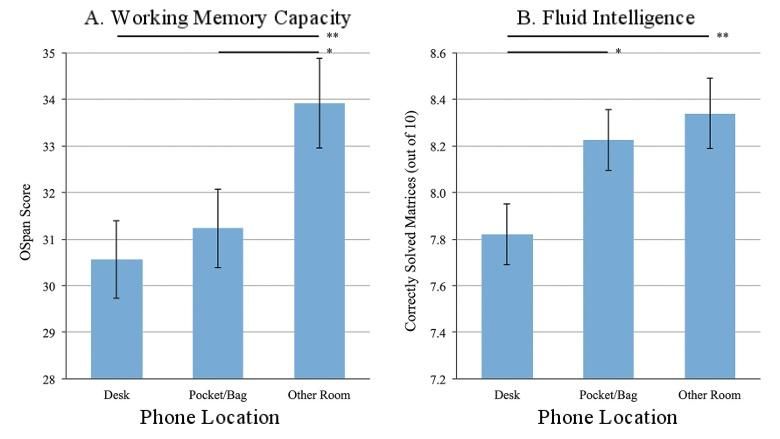In light of the Google I/O emphasis on the responsible use of Android and Republic Wireless’s recently publicized efforts to reduce childhood exposure to online media, we wanted to pass along a recent study published in the Journal of the Association for Consumer Research with the hypothesis that even having your phone on the table while you’re doing something else reduces your cognitive capacity.
“In a poignant twist, then, this means that when we are successful at resisting the urge to attend to our smartphones, we may actually be undermining our own cognitive performance,” the researchers write.
Researchers Kristen Duke, Adrian Ward, Ayelet Gneezy and Maarten Bos penned a Harvard Business Review article summarizing their findings from experiments on 800 people involving memorization, mathematics, pattern intuition and impulse. The differences between the test groups were that one left their smartphones in another room, one was asked to keep them in their pockets or bags and the other placed their phones face-down on the work surface. All notifications were set to silent. The quest was to see how the presence of participants’ phones affected their cognitive capacity and what’s ascribed as fluid intelligence.
The results showed that participants who stored their phones in another room had outperformed both other groups by a margin of more than 6 percent in working memory tests. Those in the pocket-and-bag group did much better in the fluid intelligence test relative to the desk group, but the other room group still had the highest average score. However, it was the desk group that performed better in quick-draw reaction tests.
Phone owners who are more dependent on and display more emotional attachment — much like a parent to a baby’s cry — to their devices tended to draw more extreme impacts in this study.
“Ironically, the more consumers depend on their smartphones, the more they seem to suffer from their presence,” the study says, “or, more optimistically, the more they may stand to benefit from their absence.”
All the good that a more connected world has done for people can be undermined through texting while driving or gaming for hours on end to distract from work. One measure consumers might take, the researchers suggest, is to set aside blocks of time to store their phones away from immediate access to focus on “tasks requiring deeper thought.”

